“What keywords does my site rank for?” is a question we digital marketers get asked all the time. Although it can take some time to pull this data, the good news is that there are lots of ways to figure out what keywords your site ranks for. In this blog, we’ll go over the importance of keeping tabs on your keyword rankings as well as the various ways you can do so using both free and paid tools.
Why it’s important to keep tabs on your keyword rankings
If you’re reading this article, you probably already know that having keyword ranking data is vital, but do you know exactly why that is? Knowing where you stand in the search results can help you with:
- Understanding drops in organic traffic
- Finding gaps and opportunities in your site’s content
- Getting a better picture of the types of keywords your customers use
- Monitoring your competitors
- Optimizing your on-page content
How to find out what keywords your site ranks for
There are many ways to uncover what your site ranks for in Google:
Google Search Console (Free)
If you don’t have Google Search Console (GSC) set up yet, Google has outlined each step here. If you do have GSC set up, here’s how to pull your keyword ranking data:
1. In the left-hand menu, click on the Search Results tab under Performance.
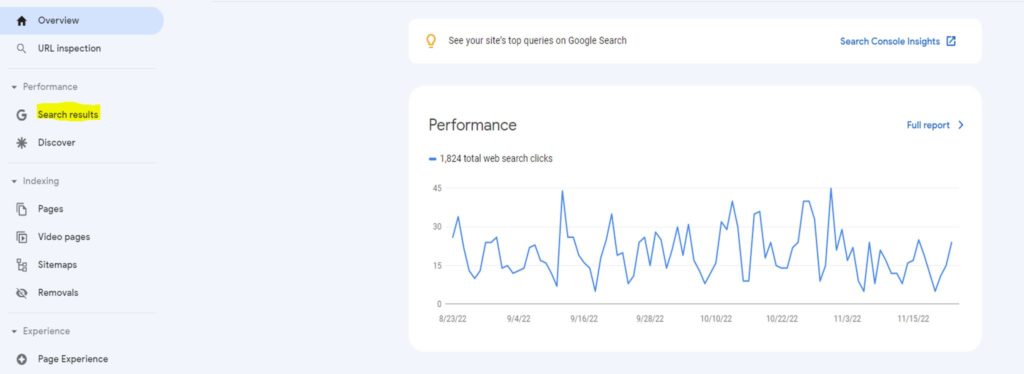
2. Click on “Average Position” at the top to display average position alongside each search query.
- Average position is the average ranking of a URL for a particular search query (i.e. keyword). Since it is an average calculation
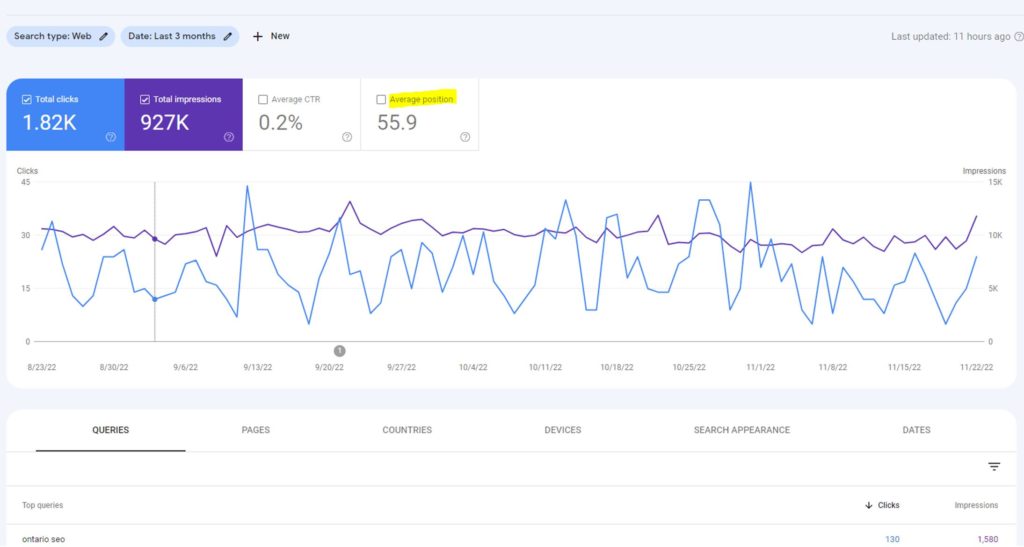
3. If it is not already selected, click the Queries tab.

4. If you are interested in looking at all rankings site-wide for a certain period of time (the default is usually the last 3 months, but you can change this), you can scroll through each and every query or export the list as an excel if you prefer. If you don’t have excessive amounts of time however, you can utilize GSC’s filters to hone in on data that is most important to you.
For example, if you’re interested in keyword ranking data for a particular page on your website, click the + New tab > Page… > and then paste the URL. You will also likely want to click on “Exact URL” so the filter doesn’t pull multiple pages.
You can also filter your query data out by search type (web, image, video, news), date, country, query, device, and search performance.
Manual Checks (Free)
Now this isn’t the most efficient way of checking your keyword rankings (or one we would necessarily recommend doing all the time) but manually checking the search engine results page (SERP) to see where your page ranks can provide lots of valuable information (even aside from rankings).
One caveat though is that Google’s default setting is to personalize your search results (even in a private browser), so if you were to Google your business’s products, rankings may seem better than they are for the majority of users since it is likely you visit your own site frequently. In order to get the most accurate results, you’ll need to do the following:
1. Open a new tab in incognito mode (or Private Window if you’re using FireFox).
2. Go to the Google home page and click on Settings in the bottom right corner.
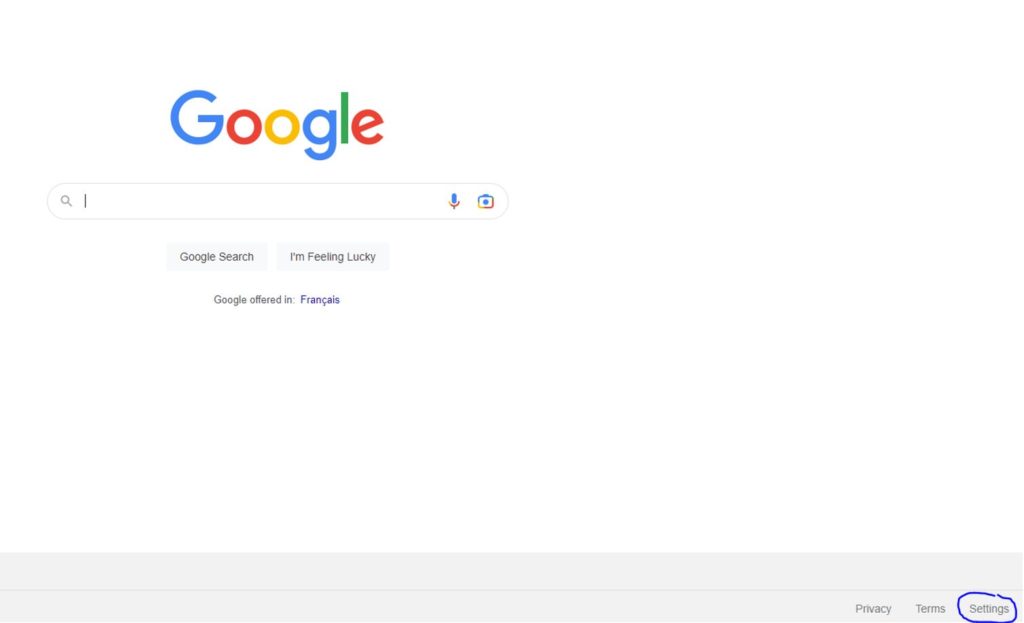
3. Click on Search History.
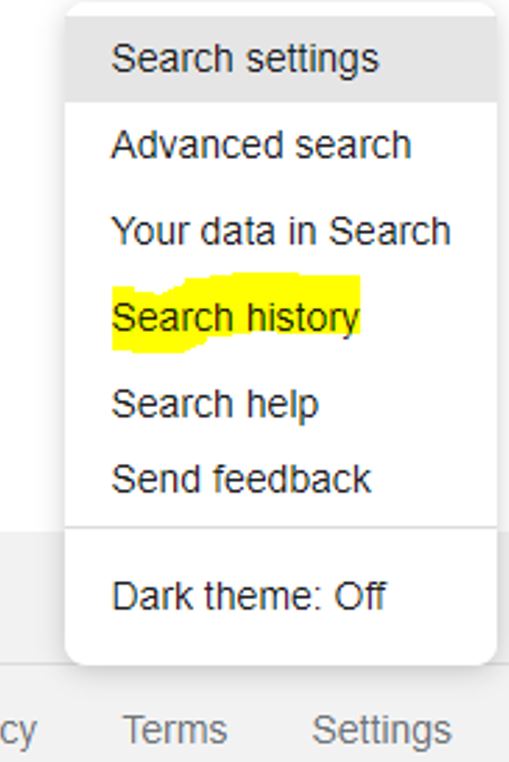
4. Toggle off Search Customization.

5. If you are wanting to view search results for a different region than you are currently in, navigate back to the Google home page > click settings again> then click on Search Settings. Scroll to the bottom of the page and under “Region Settings”, select the region you would like to browse in.
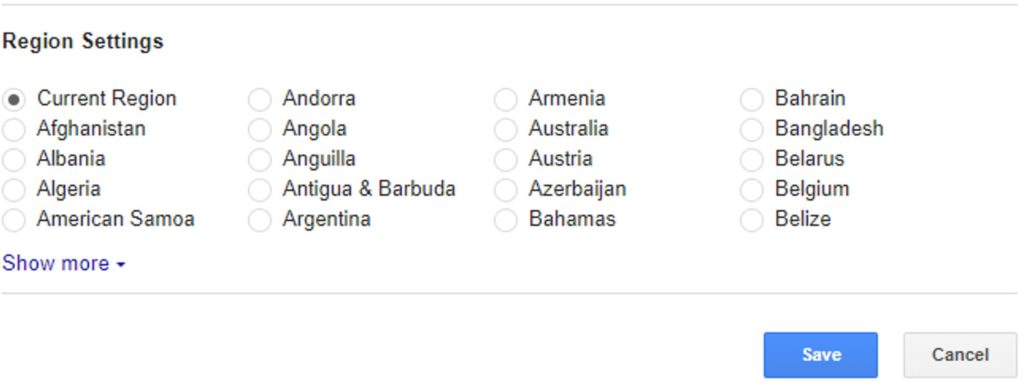
After you have done the above you can use Google to figure out your keyword rankings. Keep in mind you may need to sift through multiple pages of search results to find your site. But as you are doing so, take note of the top-ranking sites to get a better understanding of what is needed to get to the top of the search results.
Paid Keyword Ranking Tracker Tools
Now that we’ve gone over some of the free ways you can gather Google keyword ranking data, here are some of the paid tools we recommend for keeping track of your keyword rankings:
-
Advanced Web Ranking
AWR provides daily, weekly, and on-demand keyword rankings across any device, location, search engine, or language. This tool also provides competitor data and allows you to track an unlimited number of websites.
-
Ahrefs
Ahrefs’ Site Explorer tool allows you to see all the organic keywords your site ranks for and which pages rank for them. You also can compare ranking data to get a high-level view of what keywords have increased or declined.
-
Mangools
The Mangools’ SERP watcher tool allows you to track keyword rankings across any domain and can give you updates once a day. One of the more interesting features is its Performance Index which is calculation based on current keyword positions and their search volumes.
-
SEMRush
SEMRush’s Position Tracking Tool allows you to discover potential keyword opportunities, identify competitors, and stay on top of any changes in keyword rankings for your site.
-
Answer the Public
Available as both a free and paid tool, Answer the Public provides visualizations to better understand what your customers are searching for in your industry.
The Limitations of Keyword Ranking Tools
Although keyword ranking tools can provide some valuable insights, it’s important to understand that every tool is going to have some limitations (no matter if they are free or paid). For example, many of the tools we have mentioned only utilize Google’s data, so if a large majority of your customers use other search engines, you won’t be getting the full picture.
Need help improving your keyword rankings? Get in touch with our SEO team today.








